conserved 41 public buildings and monuments (including the ongoing Fifth Minaret of the Musalla Complex);
paved five public open spaces;
rehabilitated 35,000m² of pedestrian alleyways, walkways and streets;
rehabilitated seven houses;
improved 60 houses through grants and technical advice;
Employed 15 master craftsmen to train 75 apprentices, trained 120 skilled labourers, trained 30 youth as carpenters, masons and glass makers; and
generated 507,000 workdays for skilled and unskilled labour.
Read more about restoration in Herat
Balkh
We have also been involved in a number of revitalisation measures in Balkh, including the Noh Gunbad Mosque and the shrine of Abu Nasr Khwaja Parsa.
As of 2021, we had:
conserved 13 monuments;
rehabilitated two public open spaces;
paved 10,000m² of pedestrian alleyways, walkways and streets;
supported the training of 68 apprentices by 10 master craftsmen through conservation efforts;
trained 110 men as carpenters, masons and tile makers and 47 women in tailoring; and
generated 170,000 workdays for skilled and unskilled labour.
Read more about restoration in Balkh
5. KAZAKHSTAN
Kazakhstan will host one of the three campuses of the University of Central Asia (UCA), the world's first university dedicated exclusively to education and research on mountain regions and societies. The Aga Khan Music Programme also works within Kazakhstan, contributing to the revitalisation and continuing evolution of music in Central Asia.
His Highness the Aga Khan received the State Award for Peace and Progress from President Nazarbayev in 2002.
Significant Land MARKS
CULTURAL DEVELOPMENT
Over 10,000 students have been enrolled in a Murager programme, which promotes indigenous musical traditions in Kazakhstan.
The Aga Khan Music Programme sustains, develops and transmits Kazakh musical traditions. It teaches children, supports musicians, puts on performances and produces recordings.
EDUCATION
UCA’s School of Professional and Continuing Education reaches over 19,000 learners.
UCA was established to promote the social and economic development of Central Asia’s mountain communities. Its new campus in Tekeli will offer undergraduate degrees, while its School of Professional and Continuing Education offers professional and vocational qualifications.
6. KYRGYZ REPUBLIC
AKDN establishes and supports institutions and programmes that help develop an economically dynamic, socially prosperous and intellectually and culturally vibrant Kyrgyz Republic. These include the main campus of the University of Central Asia (UCA) in Naryn; the Aga Khan School, Osh; the First MicroFinance Company (FMFC); the Kyrgyz Investment Credit Bank; the Medical and Diagnostic Centre in Naryn; development initiatives supporting over 520,000 people in Osh, Jalal-Abad, Batken and Naryn; and music and arts education.
Significant Land MARKS
AGRICULTURE AND FOOD SECURITY
520,000
We have reached over 520,000 people in Osh, Jalal-Abad, Batken and Naryn oblasts
AKDN improves infrastructure, farming productivity and diversification; ensures access to financial services; and helps farmers collaborate to negotiate better terms and convey local needs to government.
Learn more
CIVIL SOCIETY
The Aga Khan Foundation (AKF) supports civil society organisations reaching 237,000 people
Our work with civil society groups includes organisational assessment and strengthening, facilitating peer exchange, brokering linkages, co-creation and collaborative implementation.
Learn more
CULTURAL DEVELOPMENT
Centre Ustatshakirt teaches traditional theatre, literature and music to 8,000 primary and secondary school students
Centre Ustatshakirt works with educational institutions across the Kyrgyz Republic. It introduces primary school children to national musical and literary traditions, and trains talented performers in musical instruments, composition and music arranging.
Learn more
EARLY CHILDHOOD DEVELOPMENT
14,500 children have access to quality early childhood services
The Early Childhood Development programme seeks to increase the capacity of existing kindergartens and to provide affordable, quality and culturally-sensitive curricula for children aged three to six.
Learn more
ECONOMIC DEVELOPMENT
The Kyrgyz Investment and Credit Bank (KICB) serves over 324,000 clients
We helped found KICB, which invests in the country’s main economic sectors and provides remote banking services, loans, insurance and financial literacy courses. We strengthen economic opportunities for women, support small businesses to grow and prepare youth for work.
Learn more
EDUCATION
UCA’s School of Professional and Continuing Education (SPCE) benefits over 34,000 learners in the Kyrgyz Republic
We invest in education for every age group, supporting government school systems as well as providing our own education. UCA’s Naryn campus offers undergraduate degrees, while the SPCE provides professional and vocational courses for youth and adults.
Learn more
HEALTH
We support health services reaching over 34,000 people per year
AKF operates a community health programme, advising expectant mothers and establishing kitchen gardens to supplement nutrition. Teleconsultations and e-learning sessions have improved remote access to health care. A family medicine and diagnostics centre has been launched in Naryn.
Learn more
MICROFINANCE
The First MicroFinance Company Kyrgyz Republic (FMFC-K) serves over 18,000 clients
AKDN set up FMFC-K to provide microfinance facilities in the rural mountainous areas of Osh and Naryn, which suffer from some of the highest poverty rates in the country. Loans are used for housing improvements, agricultural inputs, trading activities and women’s entrepreneurship.
Learn more
7. TAJIKISTAN
The Ismailis in Tajikistan are mainly concentrated in the mountainous region of Badakhshan, where they have lived for over a thousand years¹. They are estimated to number around 200,000, or about 5-10% of the population of Tajikistan².
The status of Ismailis in Tajikistan is complex and has evolved over time. The Ismailis have a distinct religious and cultural identity from the majority Sunni Muslims in Tajikistan. They meet for worship not in mosques, but in centres or homes, where they also engage in secular and religious education³. They have a strong sense of community and social service, and have benefited from the development projects of the Aga Khan Development Network⁴.
Tajik Ismailis. They belong to the larger Badakhshani Ismaili constituency and represent vividly the spiritual and cultural heritage of Ismailis in that region. The current Ismaili population is found in the Badakhshan province and other parts of Tajikistan. Many Ismailis have also migrated to Kyrgyzstan (Osh and Bishkek), Kazakhstan (Alma Ata) and Russia (Moscow, Saint Petersburg, Saratov and other cities).
The course of the Ismailis under Russian/Soviet rule is punctuated by a series of ups and downs, moments of relief, followed by traumatic social cataclysm. The early Russians and, following the 1917 revolution, the Soviets, selected Badakhshan (also known as the Pamir) as one of the regions in which to initiate a socialist revolution in the Muslim East and, therefore, invested heavily in its modernization. The Tajik Ismailis played a vital role in the creation and development of Tajik statehood. The Soviets built modern schools, hospitals, cultural centres, powerhouses, roads, and airports in all major areas of the province. Badakhshan ranked highest in the entire Soviet Union in terms of the number of individuals holding higher education degrees. It produced a great number of highly educated professionals who made valuable contributions to Tajik society. Improved health, education, social welfare and security resulted in rapid demographic changes and greater mobility, which prompted many Ismailis to migrate to Tajikistan’s lowlands and other parts of the Soviet Union.
The harshest impact of the Soviet Union was on the religious life and faith of the people. The Communists consistently regarded all religions as myths, superstitions and expressions of fanaticism. In 1936, the Tajik Afghan border was sealed. This resulted in disconnecting the Ismailis of Tajikistan from their Afghan brothers and sisters. Contact with the Imam was physically impossible. Under the pressure of militant atheism, local Pirs were either jailed or fled the country. Khalifas went underground. The performance of religious rites and rituals was forbidden. Though risky, members of the Jamat sustained, in private, their devotional traditions. This policy was relaxed during the Khrushchev era when the Soviets realized the impossibility of eradicating religion and, therefore, decided to change their tactics. To keep religion under their control, the Soviets created official religious structures. Thenceforward, Khalifas were appointed by the state, but still, the observance of religious practices remained a highly private and concealed domain of life.
In the 1980s and early 1990s, the Ismailis, like many others excited by the promise of Perestroika (Reconstruction) and Glasnost (Openness), became involved in the broader processes of political, cultural, and religious change. Unfortunately, a tragic civil war ensued in Tajikistan and many Ismailis, like others, were victims of the conflict. During and after the war, many Ismailis took refuge in Badakhshan and other parts of the former Soviet Union. During 1992–1993, Badakhshan became somewhat isolated from the rest of Tajikistan and the former USSR. This led to a period of intense introspection about changing conditions and the role of the people of the Pamir in the new configuration.
The change in the political climate and the restoration of stability, combined with the arrival of the Aga Khan Development Network (AKDN) and the re-establishment of the physical connection with the Imam-of-the-Time, His Highness the Aga Khan, as well as the global Ismaili community has brought about a new climate of hope. Various institutions began working in the area in varying capacities: providing humanitarian assistance, food and clothing; supporting the local Government in creating grassroots involvement and technical support in all of the post-Soviet reforms; supporting the development of small businesses and industries; training educational personnel and providing scholarships to study abroad; and aiming additionally to facilitate the development of citizens through the teaching of ethics, knowledge of good governance and adaptive skills necessary for the changing environment. Apart from these, the two very moving and inspirational visits of His Highness the Aga Khan to Tajikistan in 1995 and 1998 generated a new spirit in all the region's people. For the first time in centuries, the Ismailis and their fellow Muslims of Badakhshan joined in recognising their common aspirations. During both his visits, His Highness stressed the importance of peaceful co-existence, education and ethics for the development of the economy and civil society in Central Asia. These visits substantially restored the confidence level.
However, the Ismailis have also faced discrimination and repression from the Tajik authorities, who view them as a potential threat to their political and religious control. In recent years, the government has banned Ismaili home prayers, lessons for children, and religious literature, and has forced the closure of some Ismaili institutions in the capital, Dushanbe³⁵. The Ismailis have also been targeted by security operations in Badakhshan, where clashes have erupted between government forces and local armed groups⁶.
The present status of Ismailis in Tajikistan is marked by significant challenges, including government repression, restrictions on religious practices, and socio-political marginalization. Here is a detailed overview:
### 1. **Government Repression and Restrictions**
- **Ban on Religious Practices**: The Tajik government has imposed severe restrictions on Ismaili religious activities, including banning home prayers and religious education for children. Authorities have fined individuals for hosting prayer meetings and removed portraits of the Aga Khan, the spiritual leader of Ismailis, from homes and public spaces.
- **Closure of Religious Institutions**: Ismaili prayer houses and educational centers in the Gorno-Badakhshan Autonomous Region (GBAO) have been closed, and cultural activities at Ismaili centers in Dushanbe and Khorugh have been banned.
- **Crackdown on Dissent**: The government has targeted Ismaili leaders and activists, with some being imprisoned on charges of extremism. For example, Muzaffar Davlatmirov, an Ismaili religious leader, was sentenced to five years in prison for alleged "public calls for extremist activity".
### 2. **Socio-Political Marginalization**
- **Ethnic and Religious Tensions**: The Ismaili community, primarily concentrated in GBAO, faces ethnic and religious tensions with the Sunni majority. The government has attempted to integrate Ismailis into the broader Tajik society, but these efforts have been met with resistance and have not significantly improved their socio-political status.
- **Economic Dependence**: Despite the Aga Khan Development Network's (AKDN) efforts to provide economic aid and development projects in GBAO, the region remains one of the poorest and most isolated in Tajikistan. The government's crackdown on Ismaili activities has further exacerbated economic hardships.
### 3. **International and Regional Context**
- **Geopolitical Concerns**: The Tajik government is wary of the Ismaili community's potential alignment with external influences, particularly from Iran and Afghanistan. This has led to increased surveillance and repression of Ismaili activities to prevent any perceived threats to national security.
- **Human Rights Violations**: International organizations have documented widespread human rights violations against the Ismaili community, including arbitrary arrests, torture, and denial of medical treatment to imprisoned Ismaili activists.
### 4. **Community Resilience**
- **Cultural and Religious Identity**: Despite the repression, the Ismaili community has maintained its cultural and religious identity. The Aga Khan's leadership and the AKDN's development projects have played a crucial role in preserving Ismaili heritage and providing essential services to the community.
- **International Support**: The Ismaili community has received support from international human rights organizations and the global Ismaili diaspora, which has highlighted the plight of Ismailis in Tajikistan and called for greater protection of their rights.
In summary, the Ismaili community in Tajikistan faces significant challenges due to government repression, socio-political marginalization, and economic hardships. However, the community remains resilient, with strong cultural and religious ties and support from international networks.
The Ismailis in Tajikistan are thus a minority group that struggles to preserve their faith and culture in the face of state pressure and social marginalization. They are also part of a global Ismaili community that spans over 25 countries and seeks to promote peace, pluralism, and human dignity.
In 2015, the Tajik government passed a law that banned the activities of all religious groups that are not officially recognized by the state. This law has had a particularly negative impact on Ismailis, who are not recognized as an official religion in Tajikistan.
As a result of these restrictions, Ismailis in Tajikistan have been forced to practice their religion in secret. They have also been denied access to government jobs and educational opportunities. In some cases, they have been forced to leave the country in order to escape persecution.
The international community has condemned the Tajik government's treatment of Ismailis. In 2019, the United States Commission on International Religious Freedom (USCIRF) designated Tajikistan as a "Country of Particular Concern" for its violations of religious freedom. USCIRF has called on the Tajik government to end its persecution of Ismailis and to respect their right to freedom of religion.
Here are some specific examples of the challenges that Ismailis in Tajikistan face:
* They are denied the right to build JKs or other religious buildings.
* They are not allowed to hold public religious gatherings.
* They are forced to practice their religion in secret, often in private homes.
* They are denied access to government jobs and educational opportunities.
* They are sometimes harassed or detained by the police.
* They have been forced to leave the country in order to escape persecution.
Despite these challenges, Ismailis in Tajikistan continue to practice their religion and to maintain their cultural identity. They are a resilient and resourceful community, and they are determined to overcome the obstacles that they face.
Significant Land MARKS
University of Central Asia Khorog - Education That Transforms Lives;The University of Central Asia (UCA) is a world-class centre for knowledge and learning, connecting isolated rural communities with the global community and building human capital needed for modern economies and stable governance.
The mission of UCA is to promote the social and economic development of Central Asia, particularly its mountain communities, by offering an internationally recognised standard of higher education and enabling the peoples of the region to preserve their rich cultural heritage as assets for the future.
Infrastructure projects for peace and stability in Khorog, Tajikistan
In Khorog, Tajikistan, the Aga Khan Agency for Habitat is constructing six playgrounds/sports stadiums, a riverbank protection project in the Sharifobod area, a water supply system for the Bizmich neighbourhood, and a new school in Saidmir Abdurahmonov Street.
US$ 26 million investment by the Tajik Government, AKFED and other international agencies has expanded the capacity of a partially constructed Soviet-era hydroelectric power plant. The plant, Pamir 1, has boosted the supply of hydroelectric energy in eastern Tajikistan, especially during the critical winter months.
Ismaili Centre Dushanbe: The Ismaili Centres are symbolic markers of the permanent presence and core values of Ismaili communities around the world. Incorporating spaces for social and cultural gatherings, intellectual engagement and reflection, as well as spiritual contemplation, they are bridges of friendship and understanding, and serve to enhance relationships among faith communities, government and civil society.
AGRICULTURE AND FOOD SECURITY
The Aga Khan Foundation (AKF) has supported 326,000 farmers to adapt to climate change, seize economic opportunities and mitigate physical hazards.
We aim to ensure food security and address maternal and child malnutrition. We aid agricultural development through investing in infrastructure, improving natural resource management and adapting to climate change.
Learn more
CULTURAL DEVELOPMENT
Khorog Park receives over 55,000 visitors annually
We support musical teaching and performance within and beyond Tajikistan. We are sponsoring a town planning initiative in the city of Khorog and have redeveloped Khorog Park to provide a public green space and revitalise the city.
Learn more
CIVIL SOCIETY
AKF is supporting 848 civil society organisations, reaching 98,000 people
AKF has established community-based civil society organisations that connect over 1.4 million constituents and link their needs to district and regional development plans.
Learn more
DISASTER PREPAREDNESS AND RESPONSE
The Aga Khan Agency for Habitat (AKAH) has helped over 465,000 people mitigate the impact of natural disasters
Our prediction, prevention and capacity building work helps communities living in precarious mountain environments to increase their resilience to natural disasters. We have responded to over 200 emergencies, including flooding, mudslides, avalanches, landslides and earthquakes.
Learn more
EARLY CHILDHOOD DEVELOPMENT
AKF is working with 16,000 children
We directly provide education, improve access to community-centred early learning and offer professional development for teachers. Prenatal maternal health programmes, parent counselling and primary care provision help children to develop holistically.
Learn more
ECONOMIC DEVELOPMENT
Pamir Energy provides energy for about 96 percent of the population of Gorno-Badakhshan, with subsidies for the poorest
We are making long-term investments in Tajikistan’s energy, telecommunications and tourism sectors. We work with entrepreneurs, youth and employers, providing skills training, investment, services and infrastructure, and supporting community-based savings groups.
Learn more
EDUCATION
The Aga Khan Lycée, Khorog has over 2,000 graduates
Our education activities reach two-year-olds up to postgraduate researchers, through our own school and university as well as our outreach programmes, school improvement programmes and professional training.
Learn more
HABITAT
AKAH has given over 53,550 people access to safe drinking water and sanitation
We engage with communities living in precarious mountain and rural environments to increase their resilience to natural disasters and complex emergencies. We also support them in adjusting their habitat to enhance their health, education and economic development.
Learn more
HEALTH AND NUTRITION
650,000 people have gained access to primary health care in the last six years
We teach nutrition, hygiene and sanitation, to construct drinking water and sanitation facilities, and to support adolescent health. We use teleconsultations to increase access and aim for universal healthcare coverage through our community-based health financing model.
Learn more
MICROFINANCE
The First Microfinance Bank Tajikistan has 160,000 depositors
AKDN established the First Microfinance Bank Tajikistan (FMFB-T). It aims to improve the quality of life and the financial awareness of its clients, many of whom live in remote areas and are dependent on remittances.
Learn more
Source: Conversation with Bing, 1/7/2024
(1) Ismaili Centre, Dushanbe - Wikipedia. https://en.wikipedia.org/wiki/Ismaili_Centre,_Dushanbe.
(2) Tajikistan: Authorities intensify war on Ismailis, other Muslims. https://eurasianet.org/tajikistan-authorities-intensify-war-on-ismailis-other-muslims.
(3) Tajikistan: Regime Bans Ismaili Home Prayers, Lessons For Children. https://ankarachronicles.com/2023/02/23/tajikistan-regime-bans-ismaili-home-prayers-lessons-for-children/.
(4) The Aga Khan’s tightrope walk in Tajikistan - Al Jazeera. https://www.aljazeera.com/opinions/2013/8/31/the-aga-khans-tightrope-walk-in-tajikistan/.
(5) Tajikistan: Regime Bans Ismaili Home Prayers, Lessons For Children. https://www.eurasiareview.com/22022023-tajikistan-regime-bans-ismaili-home-prayers-lessons-for-children/.
(6) undefined. https://the.ismaili/ismailicentres/dushanbe
MIDDLE EAST
Skip to main content

8. EGYPT
AKDN’s engagement in Egypt reflects the deep and long historical importance of Cairo and Egypt to the Ismaili Imamat. The fourth Fatimid caliph and 14th Ismaili Imam established the city of Cairo in 969.
We are engaged in assisting poor rural communities to improve their livelihoods. We have created and now operate Al-Azhar Park, the green lung of Cairo. We support young people to build better futures through education and vocational training.
The Ismailis and their Role in the History of Medieval Syria and the Near East
File type: PDF
"The Ismailis and their Role in the History of Medieval Syria and the Near East" by Professor Azim Nanji and Dr. Farhad Daftary
Keywords:Ismailis, Syria, Fatimids, Shi‘a, Salamiyya, da'wa, da‘i, Cairo, al-Azhar, Dar al-‘Ilm, Alamut, Saljuq, Crusaders, Nizari, Aleppo, Damascus, Jabal Bahra, Rashid al-Din Sinan, Kahf, Mamluks, Baybars, Mongols, Abbasid, Hospitallers, Salah al-Din, holy war.
Whether overtly or covertly, the Ismailis have played an important role in the cultural history of Islam, particularly in Syria and Egypt, where they constituted the Fatimid , which was to last for around 200 years. After the fall of the in 1171 CE and during the subsequent diaspora, they became famous for their strongholds in Iran and Syria, from where they intervened in the various conflicts between Christian powers and the Muslim kingdoms in the Holy Land.
In religious terms, the Ismaili community is part of the larger diversity of the worldwide Muslim Over the passage of time, Muslims constituted a variety of groups, which exemplified diverse ways of understanding the primal message of Islam and different approaches to how that commonly held message could be reflected in the practical life and organisation of the community. The Ismailis are one such group. They are part of the branch of Islam, the Sunni being the other major branch, and have always constituted a minority, historically and in the contemporary world. At present, the Ismailis live in over twenty-five countries, in virtually every region of the world. In some of these regions, their history goes back over a thousand years. Syria is one such example where the Ismaili presence can be dated to the 9th century.
Among the Shi'a, there were those who remained faithful to the line of Imams who descended from Imam Ja'far al-Sadiq (d. 765 CE) through his son, Imam Ismail. Hence, they came to be known as Ismailis. There were other Shi'i groups who gave their allegiance to different lines of Imams. The largest group among such other Shi'is are called Ithna'ashari; they believe in a line of twelve Imams, ending in the one called Mahdi, who remains in occultation (ghayba) and would reappear to grant salvation at the end of time.
Significant Land MARKS
Al-Azhar Park: In 1984, His Highness the Aga Khan announced his decision to finance the creation of a park for the citizens of the Egyptian capital. The only central location which was of suitable scale was the derelict Darassa site, a 30-hectare (74-acre) mound of rubble adjacent to the Historic City.Al-Azhar Park represents the transformation of a rubble dump that had been used for over 500 years into one of Cairo's largest green spaces, including a formal garden area, palm avenue and water channel.
Read more
CULTURAL DEVELOPMENT
Al-Azhar Park,hosts nearly two million visitors per year
Restoration projects offer an alternative to the decline of historic areas. We have created the 30-hectare Al-Azhar Park in Cairo, catalysing urban renewal in the adjacent low-income neighbourhood.
Learn more
AGRICULTURE AND FOOD SECURITY
Over 6,000 farmers have learned improved farming techniques
We implement a rural support programme in Aswan, supporting farmers to generate additional income through better productivity, improve their nutritional intake, gain better market access, and harness new knowledge and technical capacity. Female participation, including in decision-making, is an imp
ortant goal.
Learn more
CIVIL SOCIETY CIVIL SOCIETY
The civil society organisations we support reach 99,000 people
AKDN’s Civil Society Capacity Building programme in Aswan and Cairo provides civil society organisations with technical and financial support. It also helps link local civil society with governmental bodies.
Learn more
EARLY CHILDHOOD DEVELOPMENT
Over 8,000 children have benefited from the Early Childhood Development (ECD) programme
The programme in Aswan increases parent and community involvement in ECD, promotes a culture of reading and storytelling and provides training for ECD teachers.
Learn more
ECONOMIC DEVELOPMENT
The Continuing Education Programme reaches over 4,000 people.
We are helping to address the high youth unemployment rate, the constraints on women’s employment opportunities and challenges in accessing business support.
Learn more
9. SYRIA
The Ismailis are a fascinating community with a rich history in Syria. Here's an overview of their presence in the country:
Demographics and Distribution:
The Ismailis form the largest branch of Shia Islam in Syria, constituting roughly 3% of the population.
They are primarily concentrated in the southern province of Salamiyah, with smaller communities residing in the coastal mountains west of Hama and the city of Latakia.
The Syrian Ismailis belong to the Nizari branch, distinguished by their allegiance to the Aga Khan as their spiritual leader.
Historical Significance:
The Ismaili presence in Syria dates back to the 9th century. They established themselves in the coastal mountains, constructing formidable castles like Masyaf and Banyas.
These strongholds played a crucial role in regional politics, often serving as intermediaries between Christian and Muslim powers during the Crusades.
The Syrian Ismailis also developed a distinct cultural identity, blending Islamic traditions with local customs and practices.
Challenges and Resilience:
The Syrian Civil War has significantly impacted the Ismaili community, displacing many families and damaging their infrastructure.
Despite these hardships, the Ismailis have demonstrated remarkable resilience, rebuilding their lives and institutions with the support of the Aga Khan Development Network.
The community remains actively involved in social and economic development initiatives, promoting education, healthcare, and environmental sustainability.
Further Exploration:
Significant Land MARKS
In 1999, the Syrian Directorate of Antiquities and Museums asked the Aga Khan Historic Cities Programme (AKHCP) to provide technical assistance for the conservation and reuse of a number of historic citadel sites in the country.
https://the.akdn/en/where-we-work/middle-east/syria/cultural-development-syria
Bridge tower and Ayyubid bridge, Citadel of Aleppo, Syria.
Citadel of Salah al Din
Citadel of Masyaf
Revitalisation of the Souq al Saghir
Damascus: In 2008, AKTC began work on a benchmark project for the adaptive use of landmark buildings in the historic city of Damascus.
Working with the Aga Khan Fund for Economic Development, AKTC embarked on the restoration and development of three historical palaces, Beits Sibaie, Nizam and Quwatli, into hotels. Each site, using state-of-the-art technical and engineering techniques to survey the walls, ceilings and floors, has been carefully documented. Once the documentation and planning were completed, a team of experts began the process of restoring the worst damaged parts of the buildings, starting with those areas that were in danger of collapsing.
Restoration work was halted in 2010.
Read more
10. UNITED ARAB EMIRATES
The Ismaili community in the United Arab Emirates (UAE) is a relatively small but well-established and influential group. While not as large as in other parts of the world, they have made significant contributions to the country's social, cultural, and economic landscape. Here's a breakdown of their presence:
History and Arrival:
The Ismaili presence in the UAE dates back to the early 20th century, with migration from India and other parts of the region.
Their numbers are estimated to be around 5,000, primarily concentrated in Dubai and Abu Dhabi.
Community Life and Institutions:
The Ismailis in the UAE are known for their strong sense of community and emphasis on education, philanthropy, and social service.
They have established several key institutions, including:
The Ismaili Centre Dubai: Serves as a religious, cultural, and educational hub, offering various programs and activities.
Aga Khan Academies: Provide high-quality education to students from diverse backgrounds.
Aga Khan Development Network (AKDN) organizations: Actively involved in initiatives related to healthcare, education, and cultural heritage preservation.
Contributions and Impact:
Education: Their academies offer a high standard of education, contributing to a skilled workforce and knowledge development.
Healthcare: AKDN organizations collaborate with local healthcare providers to improve access and quality of care.
Social Service: Various initiatives address social issues like poverty, disaster relief, and cultural understanding.
Cultural Enrichment: The Ismaili Centre Dubai hosts cultural events and exhibitions, promoting intercultural dialogue and understanding.
Relationship with the Government:
Challenges and Opportunities:
As a minority community, the Ismailis may face challenges in maintaining their unique cultural identity and ensuring equal opportunities.
However, they also have numerous opportunities to further contribute to the UAE's development and strengthen their integration into society.
Sources for Further Exploration:
Remember, this is just a starting point. If you have any specific questions or areas of interest about the Ismaili community in the UAE, feel free to ask!
Significant Land MARKS
CULTURAL DEVELOPMENT
Three Aga Khan Award for Architecture ceremonies have been held in the Middle East
The Aga Khan Trust for Culture (AKTC) undertakes several cultural activities in the UAE, including museum exhibitions in the UAE, a talk by the Aga Khan Museum at Art Dubai and a contemporary Arab art exhibition in Canada.
Learn more
EARLY CHILDHOOD DEVELOPMENT
The Aga Khan Early Learning Centre (AKELC) Dubai serves 100 children
The AKELC, for children of all communities aged 1-4 years, offers a secular, bilingual curriculum based on international standards of excellence. It is based within the Ismaili Centre Dubai, a site gifted by the Ruling Family of Dubai.
Learn more
ISMAILI CENTRE DUBAI:
The Ismaili Centres are symbolic markers of the permanent presence and core values of Ismaili communities around the world. “For many centuries, a prominent feature of the Muslim religious landscape has been the variety of spaces of gathering co-existing harmoniously with the masjid, which in itself has accommodated a range of diverse institutional spaces for educational, social and reflective purposes. Historically serving communities of different interpretations and spiritual affiliations, these spaces have retained their cultural nomenclatures and characteristics, from ribat and zawiyya to khanaqa and jamatkhana. The congregational space incorporated within the Ismaili Centre belongs to the historic category of jamatkhana, an institutional category that also serves a number of sister Sunni and Shia communities, in their respective contexts, in many parts of the world. Here, it will be space reserved for traditions and practices specific to the Shia Ismaili tariqah of Islam.”
– Mawlana Hazar Imam, at the Foundation Ceremony of the Ismaili Centre, Dubai, 13 December 2003.
Significant Land MARKS
11. IRAN
Ismailis in Iran are a small religious minority group who follow the Ismaili branch of Shia Islam. They are estimated to number around 200,000 people or less than 1% of the population of Iran. The vast majority of Ismailis in Iran live in the southern provinces of Kerman and Yazd, with smaller communities in Khorasan, Sistan and Baluchestan, and Tehran.
The Ismailis of Iran have a long and complex history. They first arrived in Iran in the 11th century, during the Seljuk period. Over the centuries, they faced persecution from both Sunni and Shia Muslims, as well as from the Iranian government. In the 19th century, the Ismailis of Iran were granted a degree of religious freedom by the Qajar dynasty. However, they continued to face discrimination and persecution under the Pahlavi dynasty in the 20th century.
After the Islamic Revolution in 1979, the Ismailis of Iran were granted full religious freedom. However, they still face some discrimination from the government and the majority Shia population. For example, Ismailis are not allowed to hold public office or to serve in the military. They are also required to pay a special tax, known as the jizya, which is not required of Muslims.
Despite these challenges, the Ismailis of Iran have managed to maintain their religious identity. They have their own mosques and religious schools, and they celebrate their own festivals and holidays. They also have a strong sense of community and support for one another.
The Ismailis of Iran are a resilient and resourceful community who have managed to survive and thrive despite centuries of persecution. They are an important part of the cultural and religious diversity of Iran.
Here are some additional facts about the Ismailis in Iran:
* They are divided into two main groups: the Nizari Ismailis and the Musta'li Ismailis.
* The Nizari Ismailis are the larger of the two groups, and they are led by the Aga Khan.
* The Musta'li Ismailis are led by the Dai al-Mutlaq.
* The Ismailis of Iran have their own unique religious beliefs and practices. For example, they believe that the Imam is the only legitimate leader of the Muslim community.
* They also believe that the Quran is not the only source of Islamic law.
* The Ismailis of Iran have a strong tradition of scholarship and learning.
* They have produced some of the most important Islamic scholars and philosophers in history.
* The Ismailis of Iran are a peaceful and tolerant community.
* They have a long history of coexisting with other religious groups in Iran.
12. IRAQ
**History of Ismailis in Iraq**
The Ismailis are a Shia Muslim community with a rich history and culture. They are believed to have originated in the eighth century, and their name is derived from Ismail ibn Jafar, the seventh Imam of the Shia Muslims. The Ismailis have a strong presence in Iraq, where they have lived for centuries.
The earliest Ismailis in Iraq were likely merchants and traders who settled in the country during the Abbasid caliphate. Over time, the Ismailis grew in number and influence, and they eventually established their own state in Egypt. This state, known as the Fatimid caliphate, lasted for over two centuries and ruled over much of the Middle East and North Africa.
The Fatimid caliphate was eventually overthrown by the Seljuks, a Sunni Muslim dynasty. However, the Ismailis continued to live in Iraq, and they eventually reestablished their own state in the 12th century. This state, known as the Nizari Ismaili state, lasted for over a century and ruled over parts of Iraq, Iran, and Syria.
The Nizari Ismaili state was eventually conquered by the Mongols, and the Ismailis were forced to flee to other parts of the world. Many Ismailis settled in India, where they became known as the Khojas. Others settled in Syria, Lebanon, and East Africa.
**Status of Ismailis in Iraq Today**
The Ismailis are a small but significant minority in Iraq. They are estimated to number around 100,000 people, and they live in all parts of the country. The majority of Ismailis in Iraq are members of the Nizari Ismaili community, but there are also a small number of Bohras.
The Ismailis have faced discrimination and persecution in Iraq, particularly during the Saddam Hussein regime. However, they have managed to maintain their identity and culture. The Ismailis are known for their strong sense of community and their commitment to education and social justice.
In recent years, the Ismailis have played an important role in the reconstruction of Iraq. They have established schools, hospitals, and other social service institutions. They have also been active in promoting peace and reconciliation in the country.
The Ismailis are a resilient and resourceful community. They have overcome many challenges in their history, and they continue to make a significant contribution to Iraqi society.
EAST ASIA
**Ismailis in South East Asia**
Ismailis in South East Asia constitute a significant and diverse community, with an estimated population of over 200,000 people. Ismailis have a rich history and culture in South East Asia, and they have made significant contributions to the region's development.
**History of Ismailis in South East Asia**
The Isma'ili community in South East Asia traces its roots back to the 13th century, when missionaries from Persia introduced the Isma'ili faith to the region. Ismailis gradually established themselves in various parts of South East Asia, particularly in Malaysia, Singapore, Indonesia, and Thailand. Over the centuries, they faced persecution and discrimination from various rulers, including the Portuguese and the Dutch.
13. MALAYSIA
AKTC and the urban development agency Think City are working on the urban revitalisation and conservation of the UNESCO heritage site in George Town, Penang. The historic seawall and public promenade were completed in May 2022.
Read more
14. SINGAPORE
The Ismaili community in Singapore is a vibrant and active one, with a rich history dating back to the early 19th century. Today, they are estimated to number around 10,000, making them one of the largest Ismaili communities outside of South Asia and the Middle East.
Ismailis are a Shia Ismaili Muslim sect who follow the Aga Khan as their spiritual leader. They are known for their emphasis on education, philanthropy, and social service, and they have made significant contributions to Singapore's development in these areas.
The Ismaili community in Singapore is centered around the Ismaili Centre, which was inaugurated in 1998. The Centre is a beautiful and architecturally significant building that serves as a place of worship, education, and social gathering for the community.
The Ismaili community in Singapore is also active in a number of other organizations, including the Aga Khan Development Network (AKDN), which works to improve the lives of people in developing countries around the world.
Here are some specific examples of how the Ismaili community in Singapore has made a positive impact:
The Ismaili CIVIC Singapore chapter is a volunteer organization that works on a number of social service projects, such as providing educational opportunities for underprivileged children and supporting the elderly.
The Aga Khan Education Service (AKES) operates two international schools in Singapore, which provide a high-quality education to students from all backgrounds.
The Aga Khan Hospital Singapore is a world-class medical facility that provides affordable healthcare to the community.
Overall, the Ismaili community in Singapore is a well-respected and integrated part of the country's fabric. They have made significant contributions to Singapore's development, and they continue to play an active role in the country's social and cultural life.
15. CHINA
**History of Ismailis in China**
The first Ismailis arrived in China during the Tang dynasty (618-907), when they were invited by the emperor to serve as merchants and administrators. Over time, they established communities in various parts of the country, including Guangzhou, Quanzhou, and Yangzhou. Ismailis played an important role in trade and cultural exchange between China and the Islamic world.
During the Yuan dynasty (1271-1368), Ismailis were granted official recognition by the Mongol rulers. They were allowed to build mosques and schools, and they enjoyed a period of relative prosperity. However, after the fall of the Yuan dynasty, Ismailis faced persecution and discrimination from the Ming and Qing dynasties.
In the 20th century, Ismailis in China experienced further challenges during the Cultural Revolution (1966-1976), when religious practices were suppressed. However, after the end of the Cultural Revolution, Ismailis were able to revive their community and rebuild their institutions.
**Challenges Faced by Ismailis in China**
Despite their contributions, Ismailis in China have faced challenges and discrimination. They have been subjected to religious restrictions and surveillance by the Chinese government. Some Ismailis have also experienced social and economic discrimination, particularly in rural areas. However, the community has shown resilience and determination in overcoming these challenges.
**Role of Ismailis in Promoting Peace and Tolerance**
Ismailis actively promote peace and tolerance in China. They work with other religious and ethnic communities to foster interfaith dialogue and understanding. The Aga Khan Development Network, a global non-governmental organization founded by the Aga Khan, has implemented numerous projects aimed at improving the lives of people in China, regardless of their religious or ethnic background.
In conclusion, Ismailis in China are a vibrant and diverse community that has made significant contributions to the country's development. They have faced challenges and discrimination, but they have shown resilience and determination in overcoming these obstacles. Ismailis continue to play an active role in promoting peace, tolerance, and social progress in China.
EASTERN AFRICA
Ismailis in Africa are a significant Muslim community, with an estimated population of over 2 million people.Programmes here cover agriculture, health, education, infrastructure and civil society capacity building, in a holistic approach to social development.
**History of Ismailis in Africa**
The Isma'ili community in Africa traces its roots back to the 10th century, when missionaries from Persia introduced the Isma'ili faith to the region. Ismailis gradually established themselves in various parts of the continent, particularly in North Africa, East Africa, and Madagascar. Over the centuries, they faced persecution and discrimination from various rulers, including the Mamluks, and the European colonial powers.
**Contributions of Ismailis to Africa**
Ismailis have made significant contributions to Africa's development in various fields. They have established educational institutions, hospitals, and social welfare organizations. Many prominent Ismailis have held high positions in the government, military, and business sectors. The community is known for its entrepreneurial spirit and its commitment to philanthropy.
16. KENYA
The Ismaili community in Kenya is a long-standing and dynamic one, boasting a rich history and active presence within the country. Here's a glimpse into their story:
Arrival and Establishment:
Primarily migrating from the Gujarat region of India, the first Ismaili settlers arrived in Mombasa around 1888, followed by Nairobi in 1903 and Kisumu in 1905.
Their numbers grew steadily, reaching an estimated 20,000 by 1960.
Early community settlements were established in these major cities, forming the foundation for their presence in Kenya.
Strong Roots and Community Building:
The Ismaili community in Kenya is known for its close-knit nature and emphasis on education, philanthropy, and social service.
They have established numerous institutions, including:
Five primary schools: Two in Nairobi, two in Mombasa, and one in Kisumu.
Four secondary schools: Two in Nairobi and two in Mombasa.
The Ismaili Centre: A central hub for worship, education, and social gatherings, located in Nairobi.
Significant Contributions:
Education: Their schools provide high-quality education opportunities, benefiting not just the Ismaili community but also wider Kenyan society.
Healthcare: The Aga Khan Hospital, established by the Aga Khan Development Network (AKDN), offers accessible and quality healthcare services.
Economic Development: Ismaili businesses and entrepreneurs contribute to the Kenyan economy, creating jobs and fostering growth.
Social Service: Through various initiatives, the community actively participates in social development projects, addressing issues like poverty, education, and healthcare access.
Cultural Mosaic:
The Kenyan Ismaili community represents a vibrant cultural mosaic, reflecting their diverse backgrounds and influences.
They celebrate their unique traditions and festivals, enriching Kenya's cultural landscape.
Looking Ahead:
The Ismaili community in Kenya remains committed to playing an active role in the country's progress and development.
Their focus on education, social service, and cultural preservation ensures their continued positive impact on Kenyan society.
Significant Land MARKS
Tsavo power plant – a reliable energy source in southern Kenya.
CIVIL SOCIETY The Aga Khan Foundation (AKF) supports 2,400 civil society organisations in Kenya
ENVIRONMENT AND CLIMATE CHANGE: We have planted over 12 million trees in Kenya.
EARLY CHILDHOOD DEVELOPMENT
AKF reaches 32,500 young children in Kenya.
ECONOMIC DEVELOPMENT: AKDN companies generate over $ 940 million annually.
EDUCATION: We work with over 49,000 learners in Kenya.We have provided education in Kenya for over a century. We run schools, educate nurses, specialist physicians, educators, journalists and communicators, support education policy and undertake research on improving learning outcomes.
HEALTH: Health facilities in Kenya receive over 900,000 patient visits per year
We operate three hospitals and over 70 linked health centres. Our community-level work includes training health workers and offering maternal and child health services. We offer professional development for nurses and postgraduate training for specialist physicians.
GRADUATE SCHOOL OF MEDIA AND COMMUNICATIONS
GSMC has highlighted East Africa’s environmental challenges in 52 documentaries that have been seen by millions.
GSMC fosters an ethical, diverse, independent, innovative and economically thriving media and communications sector that contributes to the creation of successful and sustainable societies in an era of rapid change.
Learn more
INSTITUTE FOR HUMAN DEVELOPMENT
IHD and its partners have received $6.5 million from the US NIH for a major predictive health research project.
The Institute generates and applies knowledge on early childhood development in developing world contexts, providing professional development and influencing policymaking.
Learn more
Aga Khan Academy Mombasa: In 2000, His Highness the Aga Khan initiated the establishment of the Aga Khan Academies, an integrated network of schools to be located in countries across Africa, South and Central Asia, and the Middle East.
The aim of the Academies is to develop future leaders with the skills and knowledge to support positive development in their societies. The Academies achieve this by recruiting exceptional young people from all backgrounds and providing them with the highest international standard of education.
Global network
When complete, the network of Academies will form a global learning community of about 18 schools in 14 countries (view a map). They will eventually serve approximately 14,000 girls and boys of exceptional calibre, graduating 1,500 students annually.
The first Aga Khan Academy opened in Mombasa, Kenya in 2003, the second in Hyderabad, India in 2011 and the third in Maputo, Mozambique in 2013.
Admission is based upon merit, with financial aid available to ensure access for accepted students regardless of financial circumstances.
The Academy programme develops students who are committed to positive change and are able to understand and analyse complex issues of local, national and global significance.
The vcurriculum is built on the framework of the International Baccalaureate (IB). The IB is a thorough, multidisciplinary curriculum that fosters:
Aga Khan Academy
17. MADAGASCAR
The Ismaili community in Madagascar has a fascinating history and plays a vibrant role in the country's social and economic landscape. Here's what I can share:
Arrival and Growth:
The first Ismaili settlers arrived in Madagascar in the late 19th century, primarily from India and East Africa.
Their numbers grew steadily, with estimates suggesting around 10,000 Ismailis residing in Madagascar today.
Community Life and Values:
Similar to Ismailis in other countries, the community emphasizes education, philanthropy, and social service.
They established numerous institutions, including:
The Ismaili Centre: Serving as a religious, educational, and social hub in the capital, Antananarivo.
Aga Khan schools: Providing quality education opportunities for both Ismaili and non-Ismaili students.
Aga Khan Health Services: Offering accessible healthcare services.
Aga Khan Development Network (AKDN) organizations: Engaging in various initiatives for poverty alleviation, environmental protection, and cultural preservation.
Contributions to Madagascar:
Education: Their schools contribute to a higher literacy rate and better-educated citizens.
Healthcare: Aga Khan Health Services provide crucial medical care, especially in underserved areas.
Economic Development: Ismaili businesses contribute to job creation and economic growth.
Social Service: AKDN projects address issues like poverty, sanitation, and disaster relief.
Cultural Identity:
Interesting Facts:
In 2007, the current spiritual leader of the Ismailis, Prince Karim Aga Khan (known as Mawlana Hazar Imam), made a Golden Jubilee visit to Madagascar, highlighting the community's importance.
The Ismaili website for Madagascar ("the.ismaili/madagascar") offers in-depth information about their activities and contributions.
Significant Land MARKS
AGRICULTURE AND FOOD SECURITY
Over 80,000 smallholder rice farmers have increased their yields since 2005.
We have tripled rice production in our programmatic areas since 2005, helping to end the hungry season between harvests. We help farmers to diversify their crops and reach markets. We promote conservation agriculture techniques to mitigate the impact of climate
Change.
Learn more
MICROFINANCE
PAMF-Madagascar disbursed more than 695,000 digital loans in 2021.
The Premiere Agence de Microfinance (PAMF-Madagascar) aims to reach the population not served by the banking sector - more than 90 percent. We have established community-based savings groups in two of Sofia’s districts to promote access to basic financial services.
Learn mor
18. RWANDA
Unfortunately, information about the Ismaili community in Rwanda is scarce online compared to other countries like Kenya or Singapore. However, based on the limited resources available, here's what I can share:
Presence:
There is evidence of an Ismaili presence in Rwanda, with a Jamatkhana (place of worship) located in Kigali, the capital city.
The exact number of Ismailis residing in Rwanda is unknown, but it's likely a smaller community compared to neighboring countries.
History:
Community Life:
Similar to other Ismaili communities worldwide, they likely emphasize education, philanthropy, and social service.
The Kigali Jamatkhana serves as a central hub for worship, gatherings, and potentially educational or social initiatives.
Challenges and Opportunities:
As a smaller community, they might face challenges in maintaining their unique cultural identity and securing resources for community development.
However, their potential contributions to education, healthcare, and social service initiatives should not be underestimated.
Further Exploration:
Although online information is limited, reaching out to the Kigali Jamatkhana directly might provide insights into the community's life, history, and activities.
Exploring offline resources like historical documents, local news archives, or contacting community leaders could offer deeper understanding.
19. Tanzania
The Ismaili community in Tanzania is a vibrant and well-established one, boasting a rich history and significant contributions to the nation's social and economic fabric. Here's a deeper dive into their story:
Arrival and Growth:
The first Ismaili settlers arrived in Tanzania, then known as Tanganyika, in the 1840s, primarily from Gujarat, India. They settled in Zanzibar, attracted by economic opportunities in trade and commerce.
Their numbers grew steadily, reaching an estimated 100,000 by the mid-20th century.
Today, they constitute approximately 2% of Tanzania's population, making them the country's largest Shia Ismaili community.
Strong Community and Institutions:
The Ismaili community in Tanzania is known for its close-knit nature and emphasis on education, philanthropy, and social service.
They have established numerous institutions, including:
Over 100 schools: Providing high-quality education opportunities from primary to secondary levels.
The Aga Khan Hospital: Offering top-notch healthcare services accessible to a wider community.
The Aga Khan Development Network (AKDN) organizations: Actively engaged in various initiatives for poverty alleviation, rural development, and environmental protection.
Significant Contributions:
Education: Their schools have educated generations of Tanzanians, both Ismaili and non-Ismaili, contributing to a higher literacy rate and skilled workforce.
Healthcare: The Aga Khan Hospital provides quality healthcare services, especially in underserved areas, and has been instrumental in addressing public health challenges.
Economic Development: Ismaili businesses are major players in Tanzania's economy, creating jobs and driving growth in various sectors.
Social Service: AKDN projects address issues like poverty, sanitation, and disaster preparedness, improving the lives of many Tanzanians.
Cultural Tapestry:
Looking Ahead:
The Ismaili community in Tanzania remains committed to playing a vital role in the country's progress and development.
Their focus on education, social service, and cultural preservation ensures their continued positive impact on Tanzanian society.
Significant Land MARKS
EARLY CHILDHOOD DEVELOPMENT
Over 10,000 children are supported by the Madrasa Early Childhood Programme in Zanzibar
We provide early childhood development in Zanzibar and southern Tanzania. We train teachers, support preschools and operate two nursery schools, while assisting the government to expand its community-based preschooling approach.
Learn more
ECONOMIC DEVELOPMENT
AKF has helped to strengthen over 2,000 local savings groups
We are active in financial services, including banking, insurance and supporting community-based savings groups; tourism in Tanzania’s national parks; media, promoting local industries; and providing employment in processing and manufacturing.
Learn more
EDUCATION - THE AGA KHAN UNIVERSITY:
750 nurses have graduated from the Aga Khan University (AKU) in Tanzania.
We work with the government to improve student outcomes, improve educational policy and run primary and secondary schools. AKU offers a Master of Education degree and training for nurses and specialist physicians.
Learn more
HEALTH
We have invested US$ 83 million to expand our East Africa Integrated Health System into Tanzania
AKU offers nursing and midwifery programmes and postgraduate medical education for specialists, strengthening healthcare delivery across the country. Aga Khan Health Services and AKF community health programmes focus on maternity and child health, and staff capacity building.
Learn more
20. UGANDA
The Ismaili community in Uganda is a vibrant and well-established minority group, with a rich history and significant contributions to the nation's social, economic, and cultural landscape. Here's a glimpse into their presence:
History and Arrival:
The Ismailis first arrived in Uganda in the late 19th and early 20th centuries, primarily from India and Pakistan.
They were attracted by the country's opportunities in trade and commerce, and quickly established themselves as a successful and entrepreneurial community.
Demographics and Distribution:
The exact number of Ismailis in Uganda is difficult to determine, but estimates suggest they constitute around 1-2% of the population, numbering between 40,000 to 80,000 individuals.
They are concentrated in major urban centers like Kampala, Jinja, and Mbale, although smaller communities exist in other parts of the country as well.
Religious Life and Institutions:
The community maintains several Jamaatkhanas (community centers) across Uganda, serving as places of worship, education, and social gathering.
Contributions to Ugandan Society:
The Ismailis have played a significant role in Uganda's development, particularly in the areas of education, healthcare, and economic development.
The Aga Khan Development Network (AKDN), an international network of development agencies founded by the Imam, has implemented numerous projects in Uganda, focusing on education, healthcare, rural development, and cultural preservation.
The community is also known for its strong work ethic, philanthropic spirit, and commitment to interfaith dialogue and understanding.
The relationship between Idi Amin and the Ismailis in Uganda is a complex and deeply impactful one, marked by both positive and negative aspects. Here's a breakdown:
Positive Aspects:
Early Relationship: During the initial years of Amin's rule (1971-1972), the relationship between the government and the Ismaili community was generally positive. Amin even appointed some prominent Ismailis to government positions, recognizing their contributions to the economy.
Negative Aspects:
Expulsion of Asians: However, in 1972, things took a drastic turn with Amin's infamous decree expelling all "Asians" from Uganda, including those who were Ugandan citizens. This deeply affected the Ismaili community, as many belonged to families settled in the country for generations. They were given only 90 days to leave, losing their businesses, homes, and lives they had built in Uganda.
Economic Impact: The expulsion had a significant negative impact on Uganda's economy, as the Ismaili community played a crucial role in various sectors.
Further Points:
Individual Experiences: It's important to remember that individual experiences within the Ismaili community vary greatly. While some faced persecution and hardship, others managed to leave relatively unscathed, thanks to international support and networks.
Global Response: The expulsion received widespread condemnation globally, highlighting the human rights violations experienced by the Ismailis and other Asian communities.
Aftermath and Diaspora: Many Ugandan Ismailis resettled in various countries, including Canada and the UK, contributing to their respective communities. In Canada, their arrival marked a significant moment in immigration history.
It's important to approach this topic with sensitivity and acknowledge the complex historical context. While the expulsion remains a dark chapter in Ugandan history, understanding its impact on the Ismailis is crucial for a nuanced understanding of their past and present in the country.
Challenges and Future:
Despite their contributions, the Ismailis in Uganda, like other minority groups, face certain challenges, such as potential discrimination and marginalization.
However, the community remains optimistic about its future and continues to actively engage in Ugandan society, striving to contribute to the nation's progress and prosperity.
Significant Land MARKS
Bujagali Energy Limited
The shareholders of Bujagali Energy Limited are SN Power Invest (a majority owned subsidiary of Scatec ASA Norway); Bujagali Holdings Power Company Ltd (BHPCL) an affiliate of Aga Khan Fund for Economic Development (AKFED); and Government of Uganda (GoU).
WEST AFRICA
21. BERKINA FASO
AKDN is one of the largest employers in the country, supporting the cotton, sugar, plastic and microfinance sectors. Three recipients of the Aga Khan Award for Architecture have been from Burkina Faso, prompting AKDN to organise a celebratory seminar in Ouagadougou.
The Aga Khan Development Network (AKDN) is a significant player in Burkina Faso, contributing to the country's economic and social development across various sectors. Here's a summary of their involvement:
Economic Development:
SOSUCO: This major sugar producer and refiner is one of the biggest employers in the country, contributing to job creation and economic activity.
Faso Coton: This company works with over 30,000 cotton farmers, providing training and improving agricultural practices, benefiting rural communities.
Microfinance: AKDN's Aga Khan Agency for Microfinance (AKAM) established Première Agence de Microfinance Burkina Faso (PAMF-B) in 2006. This institution offers financial services, particularly agricultural and livestock loans, to rural clients and small businesses, empowering entrepreneurs and promoting financial inclusion.
Education and Healthcare:
Aga Khan Academy: While there isn't currently an Aga Khan Academy in Burkina Faso, AKDN contributes to educational development through various initiatives.
Healthcare Projects: AKDN agencies, like the Aga Khan Health Services, might engage in healthcare-related projects or partnerships in Burkina Faso, although specific details require further research.
Other Contributions:
Cultural Initiatives: AKDN promotes cultural understanding and preservation through organizations like the Aga Khan Trust for Culture (AKTC). This might involve supporting local cultural heritage projects or collaborating with Burkina Faso in relevant areas.
Humanitarian Aid: During emergencies or crises, AKDN's humanitarian agency, the Aga Khan Agency for Habitat (AKAH), might provide relief and support to affected communities in Burkina Faso.
Impact:
AKDN's work in Burkina Faso has demonstrably made a positive impact in several areas:
Job creation and economic growth: Through companies like SOSUCO and Faso Coton, AKDN contributes significantly to employment and economic activity in the country.
Financial inclusion: PAMF-B empowers individuals and small businesses by providing access to financial services, fostering economic development.
Rural development: By working with cotton farmers and potentially engaging in other rural development initiatives, AKDN promotes improved livelihoods and living standards in rural areas.
Social progress: AKDN's focus on education, healthcare, and cultural initiatives contributes to broader social development and well-being in Burkina Faso.
Further Research:
To gain a deeper understanding of AKDN's specific activities and impact in Burkina Faso, you can explore the following resources:
22. COTE D’IVOIR
The Aga Khan Development Network (AKDN) has a long-standing and impactful presence in Côte d'Ivoire, contributing to the country's development in various sectors. Here's a summary of their key areas of involvement:
Economic Development:
Agribusiness: AKDN operates in the agribusiness sector through agencies like Ivoire Coton, which works with over 20,000 cotton farmers, providing training and improving agricultural practices. They also process and export cashew nuts, contributing to rural income generation.
Energy Production: AKDN's Azito Energie is the largest private-sector power plant in Sub-Saharan Africa, located in Côte d'Ivoire. It plays a crucial role in providing electricity to the country and the region.
Social Development:
Education: AKDN does not currently operate an Aga Khan Academy in Côte d'Ivoire, but it supports educational initiatives through various partnerships and programs.
Healthcare: Similar to education, AKDN's direct involvement in healthcare projects might be limited. However, they might collaborate with local organizations or participate in broader healthcare initiatives.
Social Welfare: AKDN provides social welfare programs, particularly within communities surrounding their operations. This could include access to clean water, sanitation facilities, and community development projects.
US$ 225 million Azito power plant in Côte d’Ivoire.
Impact:
AKDN's work in Côte d'Ivoire has resulted in significant positive impact:
Economic growth: Azito Energie contributes to economic activity and development, while Ivoire Coton empowers cotton farmers and promotes rural income generation.
Improved livelihoods: Social welfare programs enhance the quality of life for communities around AKDN projects, providing essential services and fostering development.
Infrastructure and energy security: Azito Energie plays a critical role in ensuring energy security and powering economic activity across the region.
Further Research:
23. MALI
Beginning in 2004, under a public-private partnership, the Aga Khan Trust for Culture (AKTC) began working to revitalise the centres of three cities in Mali. AKTC started with the restoration of the Great Mosques of Djenné and Mopti and the Djingereyber Mosque in Timbuktu, as well as the public spaces around them.
The Aga Khan Development Network (AKDN) has been actively involved in various development projects in Mali since 2003. Their interventions focus on multiple areas, aiming for a comprehensive and integrated approach to uplift the lives of communities and contribute to the country's overall development. Here's a breakdown of their key areas of engagement:
Social Development:
Urban Regeneration: AKDN has restored several historical mosques in cities like Mopti, Timbuktu, and Djenné, combining cultural preservation with urban development initiatives to improve the surrounding areas. This includes public space enhancements, sanitation facilities, and water access.
Microfinance: Première Agence de Microfinance Mali (PAMF-Mali) provides financial services to individuals and small businesses, particularly in rural areas, fostering economic empowerment and entrepreneurship.
Civil Society Strengthening: AKDN works with local organizations to build their capacity and address community needs effectively. This includes initiatives related to education, healthcare, and advocacy.
Economic Development:
Agribusiness: AKDN supports farmers through training, market access, and improved agricultural practices. This contributes to rural income generation and food security.
Hospitality and Tourism: The Aga Khan Fund for Economic Development (AKFED) has invested in hospitality projects, creating jobs and promoting tourism in Mali.
Cultural Initiatives:
Cultural Restoration: Aside from mosque restoration, AKDN supports other cultural preservation projects, safeguarding Mali's rich heritage.
Education: While there isn't an Aga Khan Academy in Mali, AKDN contributes to educational development through various initiatives and partnerships.
Impact:
AKDN's work in Mali has demonstrably impacted various aspects of the country's development:
Improved living conditions: Urban regeneration projects and access to financial services have enhanced the quality of life for many communities.
Economic empowerment: Microfinance, agribusiness support, and tourism promotion have created jobs and income opportunities.
Cultural preservation: Restoration projects and heritage initiatives safeguard Mali's cultural identity.
Capacity building: Local organizations gain valuable skills and resources to address community needs more effectively.
Further Research:
To gain a deeper understanding of AKDN's specific activities and impact in Mali, you can explore the following resources:
Read more
Significant Land MARKS
24. SENENEGAL
**Challenges Faced by Ismailis in Africa**
Despite their contributions, Ismailis in Africa have faced challenges and discrimination. They have been subjected to sectarian violence and attacks by extremist groups. Some Ismailis have also experienced social and economic discrimination, particularly in rural areas. However, the community has shown resilience and determination in overcoming these challenges.
**Role of Ismailis in Promoting Peace and Tolerance**
Ismailis actively promote peace and tolerance in Africa. They work with other religious and ethnic communities to foster interfaith dialogue and understanding. The Aga Khan Development Network, a global non-governmental organization founded by the Aga Khan, has implemented numerous projects aimed at improving the lives of people in Africa, regardless of their religious or ethnic background.
EUROPE
Ismailis in Europe constitute a significant and diverse community, with an estimated population of over 500,000 people.
**History of Ismailis in Europe**
The Isma'ili community in Europe has its roots in the 19th century, when Ismailis from South Asia and East Africa began migrating to the continent in search of better economic opportunities and education. They initially settled in major cities such as London, Paris, and Lisbon, but over time, they have established communities in many other European countries.
25. FRANCE
AKDN has for decades partnered with the French government and numerous French organisations on social (education and health), cultural and economic development. We are a Founding Partner of the Paris Peace Forum, which brings together world leaders to find cooperative solutions to global problems. The Network is present in France through the French Delegation of the AKDN, a non-profit foundation with its seat in Geneva.
His Highness the Aga Khan IV founded, and for many years served as President of, the Fondation pour la sauvegarde et le développement du Domaine de Chantilly, of which he is also one of the main patrons and donors. He was made a Commander of the Legion of Honour (1990), a Member of Academie des Beaux Arts (2008), one of France's oldest Academies, and a Commander of the Order of Arts and Letters (2010).
Significant Landmarks:
CULTURAL DEVELOPMENT
Artefacts from the Aga Khan Museum collection have been displayed at the Louvre in Paris, and the two museums continue to collaborate on a number of projects. The Aga Khan Music Programme has also brought world-class musicians to Paris to perform. Find out more about the Museum and the Music Programme.
HEALTH
Projects have included building the Heart and Cancer Centre of the Aga Khan University Hospital in Nairobi, financial and technical support for the French Medical Institute for Mothers and Children in Kabul, and the launching of an US$ 80 million programme to improve health facilities in Tanzania.
Learn more
INFRASTRUCTURE DEVELOPMENT
Joint projects have included the building of the Bujagali Dam, which today provides about a third of the electricity in Uganda, as well as the establishment of Roshan, the first mobile telephony provider in Afghanistan.
Learn more
Secretariate of His Highness the AgaKhan Aiglemont. The Aiglemont estate is an estate at Gouvieux in the Hauts-de-France region of France and functions as the secretariat and residence of His Highness Prince Karīm al-Hussaynī Āgā Khān IV. It is the headquarters of the Aga Khan Development Network, one of the largest international development networks in the world.
26. PORTUGAL
AKDN has been active in Portugal for several decades, in particular through the Aga Khan Foundation (AKF), which began working in Portugal in 1983. The Foundation’s activities in Portugal primarily focus on innovation in early childhood development and education, and strengthening civil society through the social, cultural and economic inclusion of people living in neglected or underserved communities, with a specific focus on migrant inclusion.
AKDN operates in the country within the framework of the several agreements between the Ismaili Imamat and Portugal, including:
the Protocol of Cooperation with the Portuguese Government (2005);
the Protocol of International Cooperation with the Ministry of Foreign Affairs (2008);
the International Agreement with the Portuguese Republic (2009); and
the Agreement with the Portuguese Republic for the establishment of the Seat of the Ismaili Imamat in Portugal (2015).
We collaborate with the Portuguese government, European Commission, civil society organisations and religious institutions, including the Catholic Church.
Significant Landmarks
CIVIL SOCIETY
AKF is supporting 346 civil society organisations, reaching 89,000 people
We work with the government, private sector and civil society organisations to make diverse urban neighbourhoods more participatory and socially connected.
Learn more
CULTURAL DEVELOPMENT
AKTC is collaborating on the conservation of a 12th-century settlement.
Our cultural initiatives in Portugal showcase culture as a powerful tool for development, and promote greater understanding of Muslim art, music and architecture.
Learn mor
EARLY CHILDHOOD DEVELOPMENT
AKF’s ECD and education programmes have reached 95,000 people
We invest in the development of children, their caregivers and the professionals who educate them in their formative years. We manage an ECD centre in Lisbon.
Learn more
EDUCATION
AKF is working with almost 11,000 learners at over 100 schools and learning spaces
We aim to raise the standard of education by generating research and knowledge, teaching education professionals, promoting intercultural collaboration and establishing learning communities.
Learn more
WORK AND ENTERPRISE
AKF has supported over 17,000 people in Portugal to improve their skills and access better employment opportunities
By supporting personal, social and professional development, we contribute to the economic and social integration of vulnerable populations.
Learn more
WORKING WITH PORTUGUESE-SPEAKING COUNTRIES
AKF’s work with multilateral and bilateral partners has benefitted over 500,000 Mozambicans
We run interrelated programmes across Mozambique. We have signed protocols with Brazil and with the Community of Portuguese-speaking Countries to stimulate development and improve the quality of life for underprivileged populations.
Learn mor
Seat of the Ismaili Imamat:The Seat — designated by Hazar Imam as the Diwan of the Ismaili Imamat — establishes a global headquarters in Lisbon for all dimensions of its activities, including those concerned with the affairs of the Ismaili community, international engagement and the Imamat’s commitment to improving the quality of life. This newly acquired addition not only enhances this institutional and global capacity, but reaffirms the Ismaili Imamat’s commitment to both Portugal and the city of Lisbon. A formal Seat of the Ismaili Imamat in Portugal, marking a historic milestone. The establishment of a Seat reflects a longstanding relationship between the Ismaili Imamat and the Government of Portugal.
27. SWITZERLAND
The Aga Khan Foundation, the first component part of AKDN, was founded in Switzerland by His Highness the Aga Khan, in 1967, as a private, international, non-denominational, non-profit development agency. Switzerland is the registered home for AKDN and several agencies maintain small headquarters offices in Geneva.
As such, Switzerland often serves as a hub for the coordination of development programmes within AKDN and with international partners. The Geneva head office represents approximately 0.1 percent of AKDN staff globally, with most staff based in the field.
“Our work extends to 35 countries in fields such as education and medical care, job creation and energy production, media and tourism, the fine arts and micro-finance. We believe that by improving the largest numbers of variables in the shortest possible time, we can obtain stable, long-term improvement in the quality of human life.”
His Highness the Aga Khan
London, October 2015
28. UNITED KINGDOM
For almost 50 years, AKDN agencies have enjoyed fruitful partnerships with the UK government, universities and numerous other institutions in the country and internationally. The Aga Khan Centre in King’s Cross, London, opened in 2018 to become the home of AKDN agencies in the UK. An active outreach programme has seen the Centre host numerous exhibitions and hundreds of public events.
“For over 40 years, our institutions have contributed actively to the fabric of British civil society and its rich heritage of academic endeavour and international development, while fulfilling an international mandate which has a far reaching, global impact.”
His Highness the Aga Khan
London, June 2018
Significant Landmarks
AGA KHAN CENTRE
The Centre contains six gardens, terraces and courtyards inspired by different parts of the Islamic world.
The Aga Khan Centre is a place of education, knowledge, cultural exchange and insight into Muslim civilisations. The building is the home to three organisations founded by His Highness Aga Khan: the Aga Khan Foundation UK, the Aga Khan University’s Institute for the Study of Muslim Civilisations and the Institute of Ismaili Studies.
Learn more
AGA KHAN LIBRARY
The Library has over 52,000 volumes
The Aga Khan Library is based in the Aga Khan Centre. It offers access to more than 52,000 volumes in the field of Islamic studies, and online access to its rare collections.
Learn more
AGA KHAN FOUNDATION
The Aga Khan Foundation (AKF) is a leading global development organisation working to tackle the root causes of poverty.
For more than 50 years, we have helped create strong community institutions that support sustainable, locally-driven initiatives to improve the lives of millions of people.
Rooted in Africa, Asia and the Middle East, our staff have unique insights into the complex challenges people face today as well as the opportunities for tomorrow. By combining local knowledge with global best practices, we strive to bring about transformative and long-lasting improvements to quality of life. Taking a generational approach, AKF has built the trust required to do this work even in the most fragile contexts
INSTITUTE FOR THE STUDY OF MUSLIM CIVILISATIONS
ISMC students have access to the Aga Khan Library, which houses 50,000 volumes in 50 languages, including 1,500 rare books.
ISMC’s teaching, research and outreach address the fundamental challenges of the human condition as they are expressed across the diverse societies of the Muslim world and their diasporas.
Learn more
**Contributions of Ismailis to Europe**
Ismailis have made significant contributions to Europe's development in various fields. They have established educational institutions, hospitals, and social welfare organizations. Many prominent Ismailis have held high positions in the government, business, and academia. The community is known for its entrepreneurial spirit and its commitment to philanthropy.
**Challenges Faced by Ismailis in Europe**
Despite their contributions, Ismailis in Europe have faced challenges and discrimination. Some Ismailis have also experienced social and economic discrimination, particularly in the context of rising Islamophobia in Europe. However, the community has shown resilience and determination in overcoming these challenges.
**Role of Ismailis in Promoting Peace and Tolerance**
Ismailis actively promote peace and tolerance in Europe. They work with other religious and ethnic communities to foster interfaith dialogue and understanding. The Aga Khan Development Network, a global non-governmental organization founded by the Aga Khan, has implemented numerous projects aimed at improving the lives of people in Europe, regardless of their religious or ethnic background. Versetile establishments Such as Ismail Centre, Center for Study of Muslim Civilizations (part of Aga khan university Karachi Pakistan), Ismaili Centre, are established and delivering from London in UK. The Secretariate of His Highness Aga Khan was established in Aiglemont - 40 Km north of Paris France and is operating there since decades. A recent development is the exemplary agreement with Partugal to establish the Global Seat of the Ismaili Imamat - DIWAN
The Ismaili community in Portugal is one of the largest in continental Europe, numbering thousands1. The Ismaili Centre, Lisbon, is a significant establishment for the Ismaili Muslim community in Portugal2. It was officially opened on 11 July 1998 by Portuguese President Jorge Sampaio and His Highness the Aga Khan2. The Ismaili community in Portugal has grown since the 1970s2.
The Ismaili Centre, Lisbon, is a distinct architectural complex residing in a large space of 18 thousand square meters, 12 thousand of which consist of gardens and patios2. The design is influenced by an amalgamation of traditional spatial arrangements of courtyards, such as those in the Alhambra and Fatehpur Sikri, as well as Islamic patterns2.
The Ismaili community in Portugal has around 3000 members, spread across the country3. There are also Jamatkhanas in the cities of Porto, Seixal, Oeiras, Setubal, and Algarve3. Many Ismailis in Portugal fled from Mozambique, a former Portuguese colony during the African country’s civil war which ended in 19924.
It’s important to note that on the morning of 28 March 2023, a tragic incident occurred where two Portuguese women belonging to the staff of the Ismaili Muslim Centre in Lisbon were stabbed to death1. This was a rare instance of religious violence in Portugal4.
In conclusion, Ismailis in Europe are a vibrant and diverse community that has made significant contributions to the continent's development. They have faced challenges and discrimination, but they have shown resilience and determination in overcoming these obstacles. Ismailis continue to play an active role in promoting peace, tolerance, and social progress in Europe.
NORTH AMERICA
29. CANADA
AKDN is a contemporary endeavour of the Ismaili Imamat, whose mandate it is to improve the quality of life of all peoples, irrespective of their faith, race, ethnicity or gender. Canada's pluralism, inclusiveness and global outlook have helped make it a leader in international development, and a country with whom AKDN shares core values. The permanent partnership between the Ismaili Imamat and Canada includes diplomatic cooperation and exchanges.
We have worked with Canada's government and people for nearly five decades. The Aga Khan Foundation Canada was established in 1980, and we have built other institutions and public spaces over the decades, such as the Aga Khan Museum in Toronto and the Aga Khan Garden at the University of Alberta. His Highness the Aga Khan and the Government of Canada jointly founded the Global Centre for Pluralism in 2006 to influence perspectives, inform policies and inspire pathways to advance pluralis.
**Ismailis in Canada**
Ismailis in Canada constitute a significant and growing community, with an estimated population of over 100,000 people. They are followers of the Isma'ili branch of Shia Islam, which recognizes Imam Isma'il ibn Jafar as the true successor to the Prophet Muhammad. Ismailis have a rich history and culture in Canada, and they have made significant contributions to the country's development.
**History of Ismailis in Canada**
The Isma'ili community in Canada traces its roots back to the early 20th century, when Ismailis from South Asia and East Africa began migrating to the country. They initially settled in major cities such as Toronto, Vancouver, and Edmonton, but over time, they have established communities in many other Canadian cities and towns.
**Contributions of Ismailis to Canada**
Ismailis have made significant contributions to Canada's development in various fields. They have established educational institutions, hospitals, and social welfare organizations. Many prominent Ismailis have held high positions in the government, business, and academia. The community is known for its entrepreneurial spirit and its commitment to philanthropy.
**Challenges Faced by Ismailis in Canada**
Despite their contributions, Ismailis in Canada have faced challenges and discrimination. They have been subjected to sectarian violence and attacks by extremist groups. Some Ismailis have also experienced social and economic discrimination, particularly in the context of rising Islamophobia in Canada. However, the community has shown resilience and determination in overcoming these challenges.
**Role of Ismailis in Promoting Peace and Tolerance**
Ismailis actively promote peace and tolerance in Canada. They work with other religious and ethnic communities to foster interfaith dialogue and understanding. The Aga Khan Development Network, a global non-governmental organization founded by the Aga Khan, has implemented numerous projects aimed at improving the lives of people in Canada, regardless of their religious or ethnic background.
Significant Landmarks
In appreciation of Canada's exemplary support for development programmes in these countries, the AKDN has presented several parks and gardens as gifts to Canadian cities — in Toronto and Alberta, Edmonton — in the hope that they will enhance the quality of life for residents and visitors alike.
Read more
DELEGATION OF THE ISMAILI IMAMAT
Opened in Ottawa in 2008, the Delegation of the Ismaili Imamat in Canada offers a centre for building relationships, enabling quiet diplomacy and disseminating knowledge and information, while reflecting AKDN’s wide-ranging humanistic agenda.
Learn more
AGA KHAN FOUNDATION (AKF) CANADA
AKF partners with communities in Africa and Asia to improve the quality of life for current and future generations. We integrate different approaches to tackling poverty to create the greatest impact. Canadians participate in AKFC through volunteer opportunities and fundraising.
Learn more
AGA KHAN MUSEUM AND AGA KHAN PARK
The first museum in North America dedicated to the arts of Muslim civilisations, the Aga Khan Museum showcases over 1,200 objects from the ninth to the 21st centuries. It encourages public engagement through performances, screenings, workshops and exhibitions. The core of its Permanent Collection — spanning a vast geographic area from Spain and North Africa in the west, across the Middle East, to South Asia and China in the east — was assembled by Prince Sadruddin Aga Khan (1933–2003), uncle of His Highness, Prince Karim Aga Khan IV. Prince Sadruddin began acquiring works of art in the 1950s while studying at Harvard University. Together with his wife, Princess Catherine Aga Khan, he continued to collect throughout his lifetime. His Highness the Aga Khan and his family have supported and expanded Prince Sadruddin’s collection since his death. Today, it represents the foundation of North America’s first museum dedicated exclusively to Islamic arts, where it is enhanced by superb objects from the private collections of Prince Amyn and His Highness the Aga Khan as well as new acquisitions, special exhibitions, and a rich roster of performances and public programs.
Learn more
PARKS AND GARDENS
AKDN has gifted two gardens to Canadian cities. As modern interpretations of Islamic gardens, they seek to educate and foster cultural understanding while improving quality of life through access to green spaces.
Learn more
FOCUS HUMANITARIAN ASSISTANCE (CANADA)
Established in 1994 by the Ismaili community under the guidance of His Highness the Aga Khan, Focus Humanitarian Assistance (FOCUS) helps communities prepare for and respond to emergencies, as well as helping refugees settle and integrate in Canada.
Learn more
GLOBAL CENTRE FOR PLURALISM
A partnership between the Government of Canada and His Highness the Aga Khan, the Global Centre for Pluralism works with policy leaders, educators and community builders around the world to amplify and implement the transformative power of pluralism.
Learn more
Ismaili Centre Toronto
Ismaili Centre Vancouver
ADDRESS
77 Wynford Drive, Toronto, Ontario, M3C 1K1
30. UNITED STATES OF AMERICA
In the USA, AKDN works in partnership with government agencies, corporations, foundations, NGOs, universities including Harvard, MIT and UCSF, and professional networks. Our programmes boost community resilience to disasters in the USA and also aim to break the cycle of poverty in parts of Africa and Asia.
**Ismailis in America**
Ismailis in America constitute a significant and growing community, with an estimated population of over 100,000 people. Ismailis have a rich history and culture in America, and they have made significant contributions to the country's development.
**History of Ismailis in America**
The Isma'ili community in America traces its roots back to the early 20th century, when Ismailis from South Asia and East Africa began migrating to the country. They initially settled in major cities such as New York, Chicago, and Los Angeles, but over time, they have established communities in many other American cities and towns.
**Challenges Faced by Ismailis in America**
Despite their contributions, Ismailis in America have faced challenges and discrimination. They have been subjected to sectarian violence and attacks by extremist groups. Some Ismailis have also experienced social and economic discrimination, particularly in the context of rising Islamophobia in America. However, the community has shown resilience and determination in overcoming these challenges.
AGA KHAN FOUNDATION USA: The Aga Khan Foundation’s (AKF) early childhood development initiatives benefit 2.3 million children globally
FOCUS HUMANITARIAN ASSISTANCE (USA)
FOCUS has supported over 1,300 US volunteers to train in first aid, CPR and AED skills.
PARTNERSHIPS
The Aga Khan Program for Islamic Architecture was established in 1979
AKDN has signed agreements of cooperation with the states of Texas, California and Illinois, and works on research, education and cultural programmes with several US academic institutions. We run a programme on Islamic architecture at Harvard University and MIT.
Learn more
Ismaili Centre Houston
**Role of Ismailis in Promoting Peace and Tolerance**
Ismailis actively promote peace and tolerance in America. They work with other religious and ethnic communities to foster interfaith dialogue and understanding. The Aga Khan Development Network, a global non-governmental organization founded by the Aga Khan, has implemented numerous projects aimed at improving the lives of people in America, regardless of their religious or ethnic background.
In conclusion, Ismailis in Canada and America are vibrant and diverse communities that have made significant contributions to their respective countries' development. They have faced challenges and discrimination, but they have shown resilience and determination in overcoming these obstacles. Ismailis continue to play an active role in promoting peace, tolerance, and social progress in Canada and America.
31.Australia
**Ismailis in Australia**
Ismailis in Australia constitute a significant and growing community, with an estimated population of over 20,000 people.
**History of Ismailis in Australia**
The Isma'ili community in Australia traces its roots back to the late 19th century, when Ismailis from South Asia and East Africa began migrating to the country. They initially settled in major cities such as Sydney, Melbourne, and Perth, but over time, they have established communities in many other Australian cities and towns.
**Contributions of Ismailis to Australia**
Ismailis have made significant contributions to Australia's development in various fields. They have established educational institutions, hospitals, and social welfare organizations. Many prominent Ismailis have held high positions in the government, business, and academia. The community is known for its entrepreneurial spirit and its commitment to philanthropy.
**Challenges Faced by Ismailis in Australia**
Despite their contributions, Ismailis in Australia have faced challenges and discrimination. They have been subjected to sectarian violence and attacks by extremist groups. Some Ismailis have also experienced social and economic discrimination, particularly in the context of rising Islamophobia in Australia. However, the community has shown resilience and determination in overcoming these challenges.
**Role of Ismailis in Promoting Peace and Tolerance**
Ismailis actively promote peace and tolerance in Australia. They work with other religious and ethnic communities to foster interfaith dialogue and understanding. The Aga Khan Development Network, a global non-governmental organization founded by the Aga Khan, has implemented numerous projects aimed at improving the lives of people in Australia, regardless of their religious or ethnic background.
In conclusion, Ismailis in South East Asia and Australia are vibrant and diverse communities that have made significant contributions to their respective regions' development. They have faced challenges and discrimination, but they have shown resilience and determination in overcoming these obstacles. Ismailis continue to play an active role in promoting peace, tolerance, and social progress in South East Asia and Australia.
Toggle Search Form
Toggle Menu
Home Learning Centre Scholarly contributions Academic Articles The Ismailis and their Role in the History of Medieval Syria and the Near East
01 Jan 2022
Scholarly Article
Fatimids
Author

Professor Azim Nanji
Professor Azim Nanji serves currently as Special Advisor to the Provost at the Aga Khan University. Most recently he served as Senior Associate Director of the Abbasi Program in Islamic Studies at Stanford University 2008-2010 and also lectured on Islam in the Department of Religious Studies. He was previously the of Director of the Institute of Ismaili Studies from 1998 - 2008. Prior to this, he was Professor and Chair of the Department of Religion at the University of Florida and has held academic and administrative appointments at various American and Canadian universities.
Professor Nanji has authored, co-authored and edited several books including: The Nizari Ismaili Tradition (1976), The Muslim Almanac (1996), Mapping Islamic Studies (1997) and The Historical Atlas of Islam (with M. Ruthven) (2004) and The Dictionary of Islam (with Razia Nanji), Penguin 2008. In addition, he has contributed numerous shorter studies and articles on religion, Islam and Ismailism in journals and collective volumes including The Encyclopaedia of Islam, Encyclopaedia Iranica, Oxford Encyclopaedia of the Modern Islamic World, and A Companion to Ethics. He was the Associate Editor for the revised Second Edition of The Encyclopaedia of Religion. In 1988 he was Margaret Gest Visiting Professor at Haverford College and a Visiting Professor at Stanford University in 2004, where he was also invited to give the Baccalaureate Address in 1995. He has also lectured widely at international conferences all over the world.
Professor Nanji has served as Co-Chair of the Islam section at the American Academy of Religion and on the Editorial Board of the Academy’s Journal. He has also been a member of the Philanthropy Committee of the Council on Foundations and has been the recipient of awards from the Rockefeller Foundation, the Canada Council, and the National Endowment for Humanities. In 2004 he gave the Birks Lecture at McGill University.
Within the Aga Khan Development Network, Professor Nanji has served as a Member of the Steering Committee and Master Jury of the Aga Khan Award for Architecture, Task Force Member for the Institute for the Study of Muslim Civilisations (AKU-ISMC) and Vice Chair of the Madrasa-based Early Childhood Education Programme in East-Africa.

Dr Farhad Daftary
Co-Director and Head of the Department of Academic Research and Publications
An authority in Shi'i studies, with special reference to its Ismaili tradition, Dr. Daftary has published and lectured widely in these fields of Islamic studies. In 2011 a Festschrift entitled Fortresses of the Intellect was produced to honour Dr. Daftary by a number of his colleagues and peers.
Read more
Related Articles
Previous

Read more
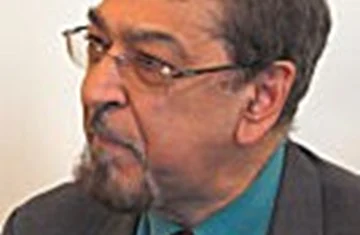
Read more
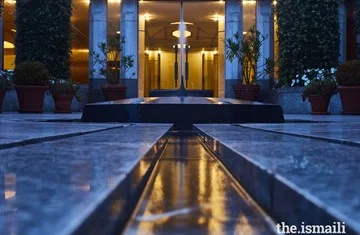
Read more
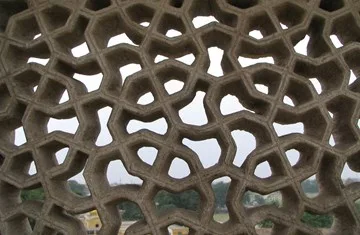
Read more
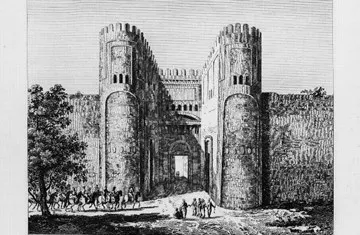
Read more
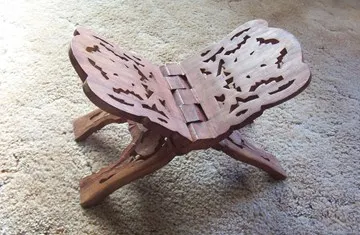
Read more
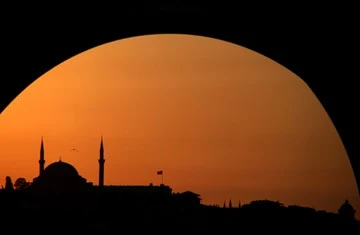
Read more
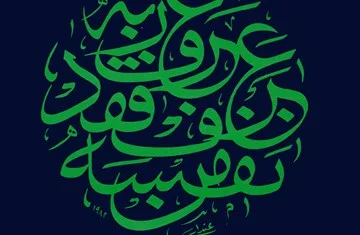
Read more

Read more
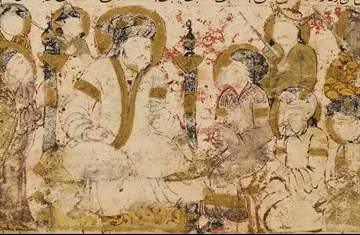
Read more

Read more
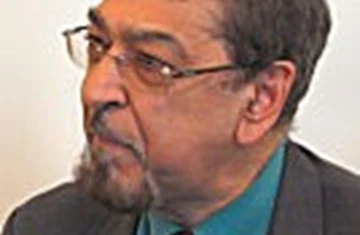
Read more
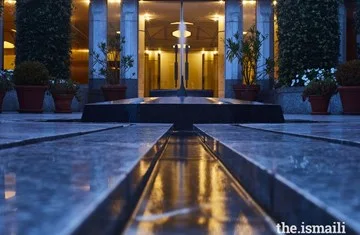
Read more
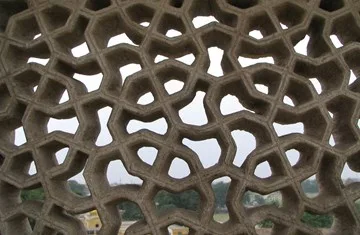
Read more
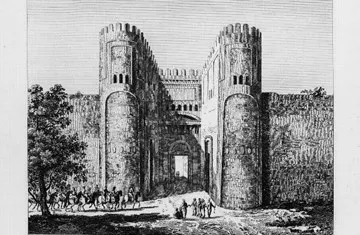
Read more
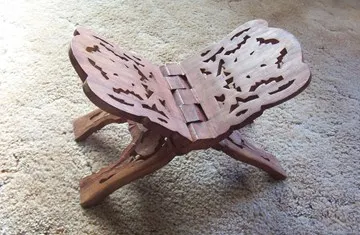
Read more
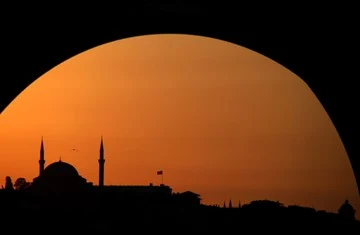
Read more
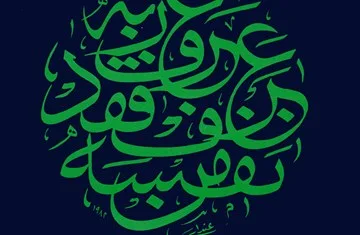
Read more

Read more
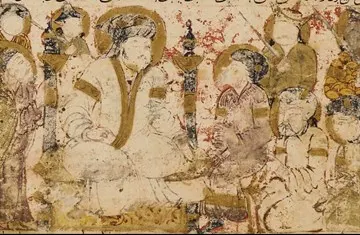
Read more

Read more
Next
Sign up for news, events & course information
Subscribe here
© 2022 The Institute of Ismaili Studies
The Institute of Ismaili Studies is incorporated as a company limited by guarantee, registered company No.1324858 (England/Wales). Registered Charity Number. 1179135. Registered Office: The Institute of Ismaili Studies, Aga Khan Centre, 10 Handyside St, King's Cross, London, N1C 4DN
Cookie Settings


